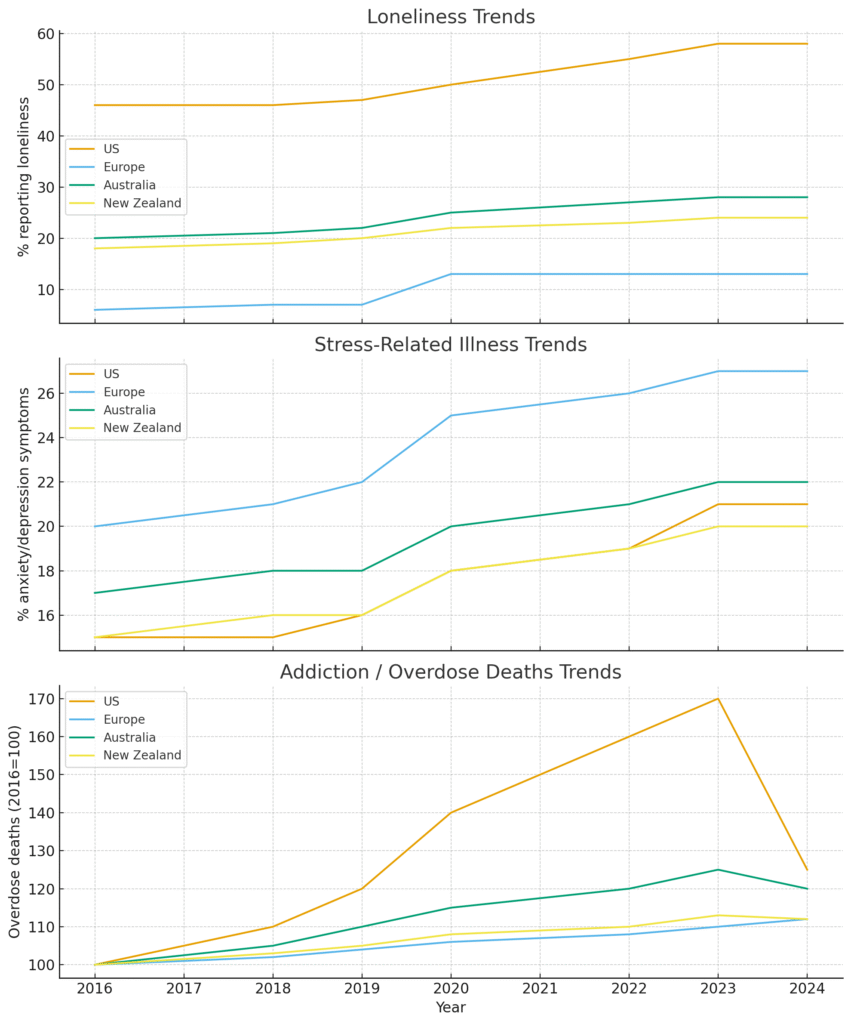Physical Address
304 North Cardinal St.
Dorchester Center, MA 02124
Physical Address
304 North Cardinal St.
Dorchester Center, MA 02124

Large language models just did something unsettling. They scored 81% on emotional intelligence tests. Humans averaged 56%.
That’s right: machines — which don’t cry at films, lose their temper in traffic, or get nervous before a first date — recognize, analyze, and regulate emotions better than we do in controlled conditions.
For a skill we’ve long called “uniquely human,” the numbers should sting.

A 2025 study tested six large language models (LLMs), including ChatGPT-4, across five domains of emotional intelligence:
Across the board, AI outperformed humans. On average:
AI: 81%
Humans: 56%
Even more striking was that when asked to create new EI test items, ChatGPT-4’s questions scored just as well as those written by psychologists.
What Is EQ?
Emotional Intelligence (EQ) is the ability to recognize, understand, and manage emotions — both your own and other people’s.
IQ measures how you think. EQ measures how you connect with others, and with yourself.

We live in an age where mental health is fraying.
Burnout is officially a global health crisis.
Loneliness has been declared an epidemic.
Negative copying techniques such as addiction and alcohol misuse disorder are on the rise.
For many of us, these challenging aspects of life are all too real.

According to the UK Government website: “There were 310,863 adults aged 18 and over in contact with drug and alcohol treatment services between April 2023 and March 2024. This is a 7% rise compared to the previous year (290,635), the largest rise in adults in treatment since 2008 to 2009, and the highest number of adults in treatment since 2009 to 2010.”
In this climate, EQ is the missing link.
If AI can set the benchmark on emotional intelligence, humans can no longer treat it as optional.
AI doesn’t feel. It simulates based on data.
Which is exactly why its performance is so revealing because it breaks EQ into patterns, feedback loops, and repeatable skills.
Here’s what humans can take away:
“If AI can outperform us on emotional intelligence tests, then the real test is this; can we train ourselves to reconnect with our emotions, and with each other?”
Rumi (13th century)
“Try to accept the changing seasons of your heart, even as you have always accepted the passing of time.”
If EQ is trainable, the obvious question is: how?
Here are practical ways to close the gap:
EQ doesn’t need hours of practice. It thrives on small, repeatable habits.
The lesson here isn’t that AI is more human than us.
It’s that we’ve forgotten the importance of emotional balance.
Machines may model emotional intelligence.
Only humans can live it. We do it through love, vulnerability, and purpose.
The risk isn’t that AI will replace human connection.
The risk is that we’ll outsource connection entirely.
If not, we’ll miss the lesson hidden in some of our greatest obstacles.
“Love your solitude and bear with sweet-sounding lamentation the suffering it causes you. For those who are near you are far away… and if you notice that those who are close to you are far away, then your vast solitude is already spreading its borders among the stars.” — Rainer Maria Rilke, Letters to a Young Poet
Rilke
The poet, Rilke, urges us to accept loneliness as part of life’s growth.
Solitude isn’t emptiness.
It’s expansion.
When we feel distance from others, it signals that we are entering a deeper, larger space within ourselves.
One that connects us to the wider universe.
This strange phenomenon holds up a mirror. It reflects back to us our own shortcomings.
If machines can outperform us on EQ tests, then maybe the question isn’t “How human is AI?”
Maybe it’s: How human are we willing to be?